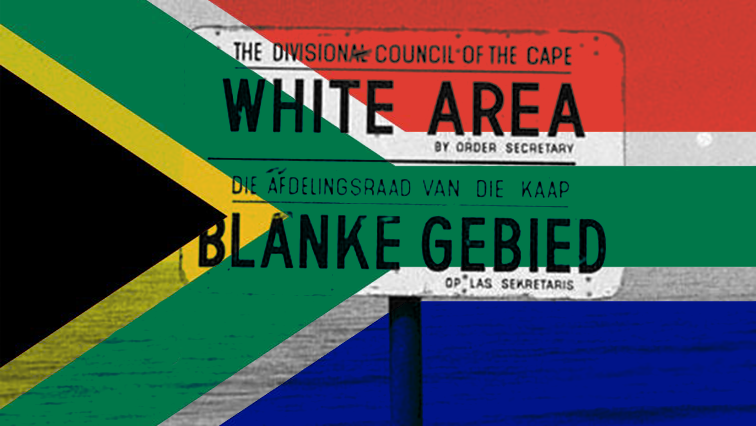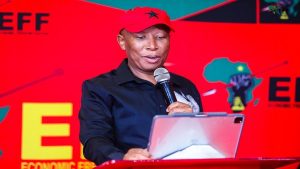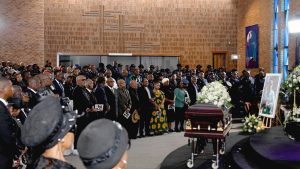By Edwin Cleophas
It has been 26 years since the official fall of apartheid and the birth of democracy. So where are we now?
NB: When referring to black people in this article, it refers to the groups unfairly and incorrectly labelled by an oppressive system as Black, Coloured and Indian.
It has been 26 years since the demise of apartheid and yet white dominance still persists. With many significant changes visible as a result of the fall of apartheid, the country sadly remains racially divided. The black majority still lives in poverty while the white minority continue to hold their position of privilege and power. While black people are trying to change the status quo, most white people are ignoring/denying their role in the past injustices and how they benefitted. They continue to perpetuate their white privilege as the gap between black and white widens. Not addressing the issues of the past, helps with maintaining the unearned privileges white people have, while the black community grows even more frustrated as the years pass.
For those with white skin, power and privilege are birth-rights that must be recognized and declined in order to reject and manage the potential for racism. But . . . for our oppressors, racism is a disturbing, embarrassing and unsettling issue. Thus, for the most part at least, the issue of racism will remain taboo. Because critical dialogue, engaging issues of race and racism hold an “unspeakable” aura, the taboo is translated into discourses that deny difference and stifle all conversations about racial injustice. Such strategies, be they deliberate or inadvertent, work to solidify oppressive power and privilege by preventing us from questioning our state of oppression or their state of privilege. (Sefa Dei, Karumanchery & Karumanchery-Luik, 2004: 99)
One of the most important victories for the South African people has been the establishment of a representative democracy, especially given this country’s history of oppression of black people, white domination, and the theft of indigenous peoples’ land and their right to live a life of dignity. South Africa has a constitutional democracy in which all organs of state are bound to act in conformity with the Constitution (Suttner, 2014). The latter partly states that:
Everyone is equal before the law and has the right to equal protection and benefit of the law. Every person is therefore entitled to equal treatment by our courts. No one is above the law and all persons are impartially subject to the law. However, the conduct of the law or government (the executive) that differentiates between people or categories of people may be justified if it reasonably serves a legitimate governmental purpose.
(Constitution of the Republic of South Africa, 2014)
Despite the spirit of equality captured in the Constitution, as well as South Africa’s best efforts post-1994 to eradicate the gap between black people and white people, white South Africans are still enjoying similar privileges as under apartheid, while black South Africans are still suffering disadvantages, much like during the apartheid years.
What is the result of this lack of transformation?
In recent times we have witnessed an increase in civil unrest in almost all spheres of society as people have lost all hope in government. Daily protests is a common occurrence as black people have to fight daily for legitimacy and dignity in a country they are indigenous to. While the trust and hope in government had been eroded by a long list of government officials who chose their own greed over the wellbeing of the nation. People are still hoping for change promised to them more than 30 years ago. While black South Africans are fighting and hoping for genuine change; what is it that our white counterparts have been doing to rectify the social injustices of the past? Where are we on reparations, restitution, land reform, restorative justice, etc.?
The sad thing is that the physical impact of the injustices of the past remains visible for most of us, this as the racist white supremacist spirit born from colonialism and apartheid still lives on in SA. White supremacist system that has the ability to transform and mutate as the system requires, and it does so almost effortless. A system that favours white people and that is embedded into all our institutions and operating at all levels of society.
How do people of colour experience the daily reality of this racist system?
For one, apartheid spatial planning is largely still intact. It has been 26 years and you can still see the white minority occupying the best and more accessible areas with beautiful beaches and rocky mountains. At the same time black people remain on the fringes of society adjacent to dumpster areas, dry and dusty terrain and God forsaken squatter camps. There are some minor outliers especially among the newly formed black elites and the fortunate upper middle class who have had better luck than the 70%+ that still live in poverty. Whether it is luck is questionable, especially when we look at the long list of accusations of irregular expenditure, tenderpreneuring and corruption that has eaten at the moral fibre within society. But let’s get back to the issue of racism.
Let’s consider the get-out-of-jail-free card that Nelson Mandela offered to white people in 1994. You would think that this would have humbled white people and would have helped them to recognize and acknowledge their role in the past and to start working endlessly to restore the wrongs of the past. This is unfortunately is not the case. Instead white people in South Africa have grown even more arrogant. Before, under apartheid, they had the whole legal and political system reinforcing their supremacy but even without that official power, they remain oblivious to their role in the struggle for a just and more equitable society.
How do we know this is true?
Well, 26 years on and you can still see the schooling system has been designed to favour white children over black children; but now we justify it on the basis of class. Class referring to people’s economic ability and capability within society to give their children the best of everything. White people do this without taking into account or addressing the issues of theft, intergenerational wealth, systemic and institutional favouritism and white privilege that benefits them. White people continue to enjoy these privileges without advocating for the equal education of all children because the status quo benefits them.
Again the question being raised is, what are white people doing with this reality?
In recent years they have basically done what they have always done. They continue to plead ignorance about all the historical and ongoing unfair privileges that they are enjoying. They are quick to cry wolf for what they perceive as unfair treatment and for something perpetuated against them. They call this reversed apartheid. They have pleaded “not guilty” to enjoying intergenerational wealth and upholding an invisible system that continue to oppress black people. They have formed political parties as well as social and civil society movements to protect their privileges; if I may add their unearned and unfair privileges. They have threatened to take up arms and have even formed their own “secret” military force.
The apartheid racial slurs are still being used regularly, as incidents of people of colour being called kaffir or hotnot are reported on almost daily. Incidents where black people are demeaned by white people, sometimes for fun or as a result of hate, remain prevalent. White people are holding on to the belief that they are superior in every way, shape and form. White Afrikaners still strive towards keeping the “Afrikaner volk” and their traditions alive whether racist or not. English white people on the other hand act as if they are oblivious to their direct involvement in the maintenance of apartheid. This while black people are growing more and more frustrated daily because no matter how hard they fight; racism still remain and white people still hold the power to determine their tomorrow.
Fortunately, in the everlasting fight against racism and all its unfair paradigms that shift from time to time to secure white dominance, there is some light at the end of the tunnel. This light has quite literally been the white women and men who have taken up the task to act as allies in this fight for racial justice, equity and economic empowerment of black people. They are not viewed as heroes, but instead as people of integrity and strength. They have, in spite of the backlash and loss of opportunities and resources, made an active decision to stand with black people in SA. There have been people like this throughout the country’s history of oppression, and the hope is that they can join us in our efforts to deal racism a final blow.
How do white people act in ways that address racism and injustice?
They have made a conscious effort to build genuine and honest relationships with people of colour. They do introspection about why they “think” or “believe” that they are superior and they deal with the disturbing emotions involved in such introspection. They have read widely and educated themselves about the injustices of the past and how racism has become entrenched in our society before engaging black people. They have spoken out at family functions and in public, even when it was not fashionable to do so. They have taught their children about the wrongs of the past and set them on the path to correcting those wrongs. They have started to contribute economically towards the sustainability of black people’s businesses and dreams.
They have offered, without charging, /volunteered their services and expertise to black people to close the gap just a little bit. They have advocated, written articles, media briefings, social media posts, and started inclusive social groups to be part of the solution. Through these actions, we have seen just how powerful we can be as a united group when we stand together in honesty and for justice, not for our own gain but for the greater good of all people. These are the white people we want to support and build a new South Africa with. Our dream is a society where we can all share in the wealth, resources and opportunities that this country has to offer. The rest who is set on upholding the pillars of racism and the benefits they unfairly enjoy from it, does not have a future in this country and history will favour this narrative.
Edwin Cleophas is Managing Director of the Social Justice Agency based in Cape Town, but writes in his capacity as a Social Cohesion Advocate with the Department of Sport, Arts & Culture






